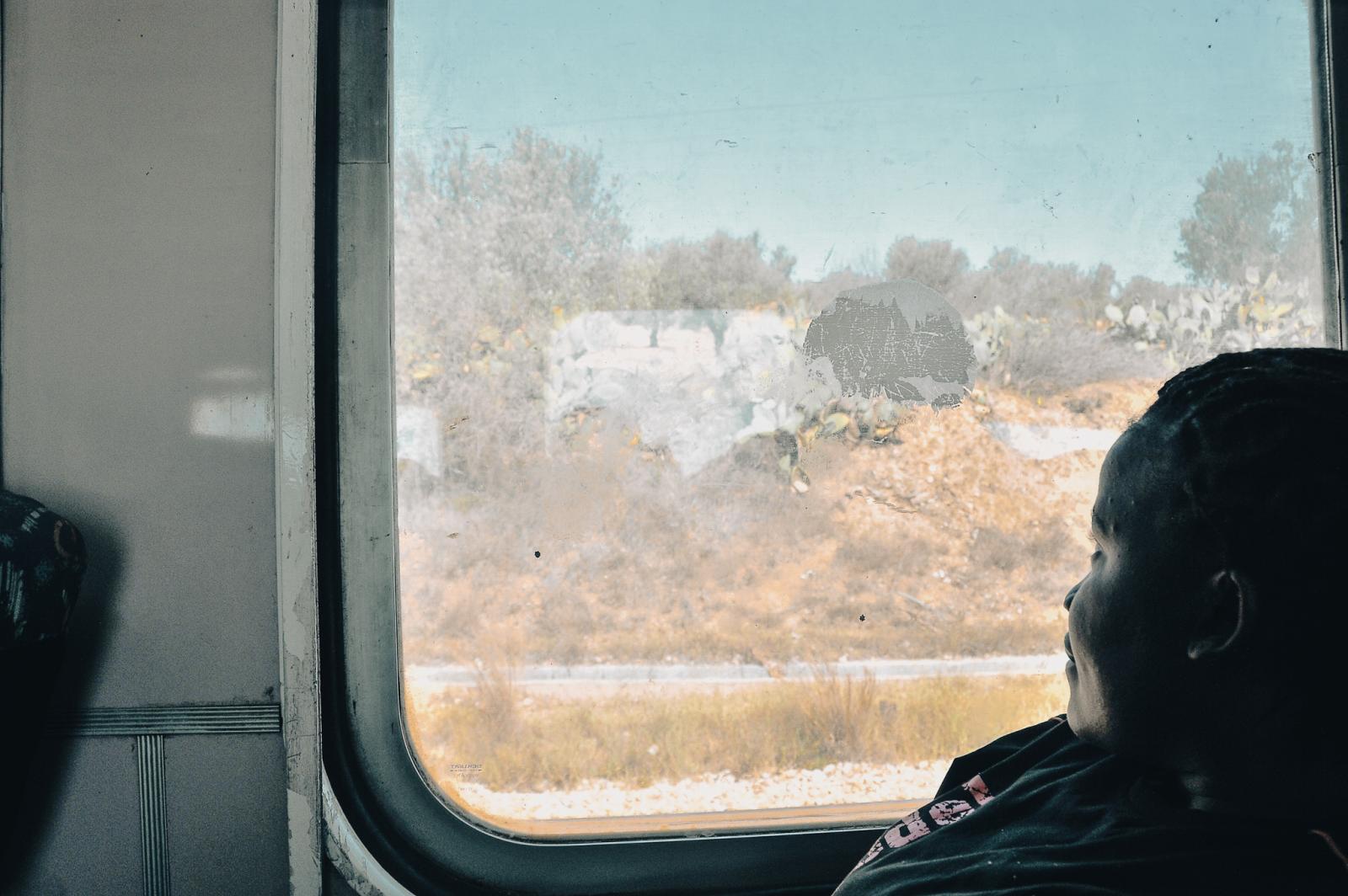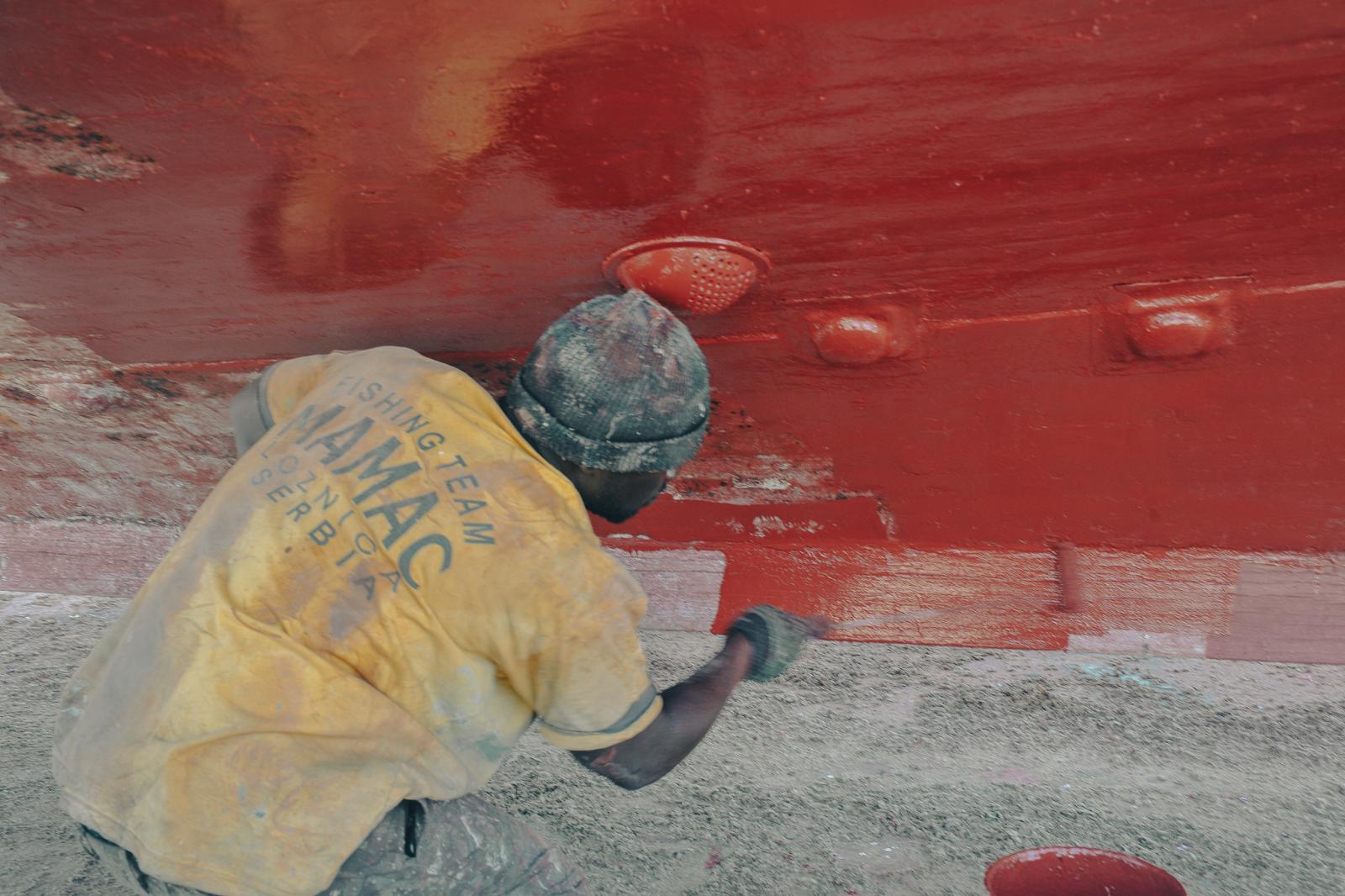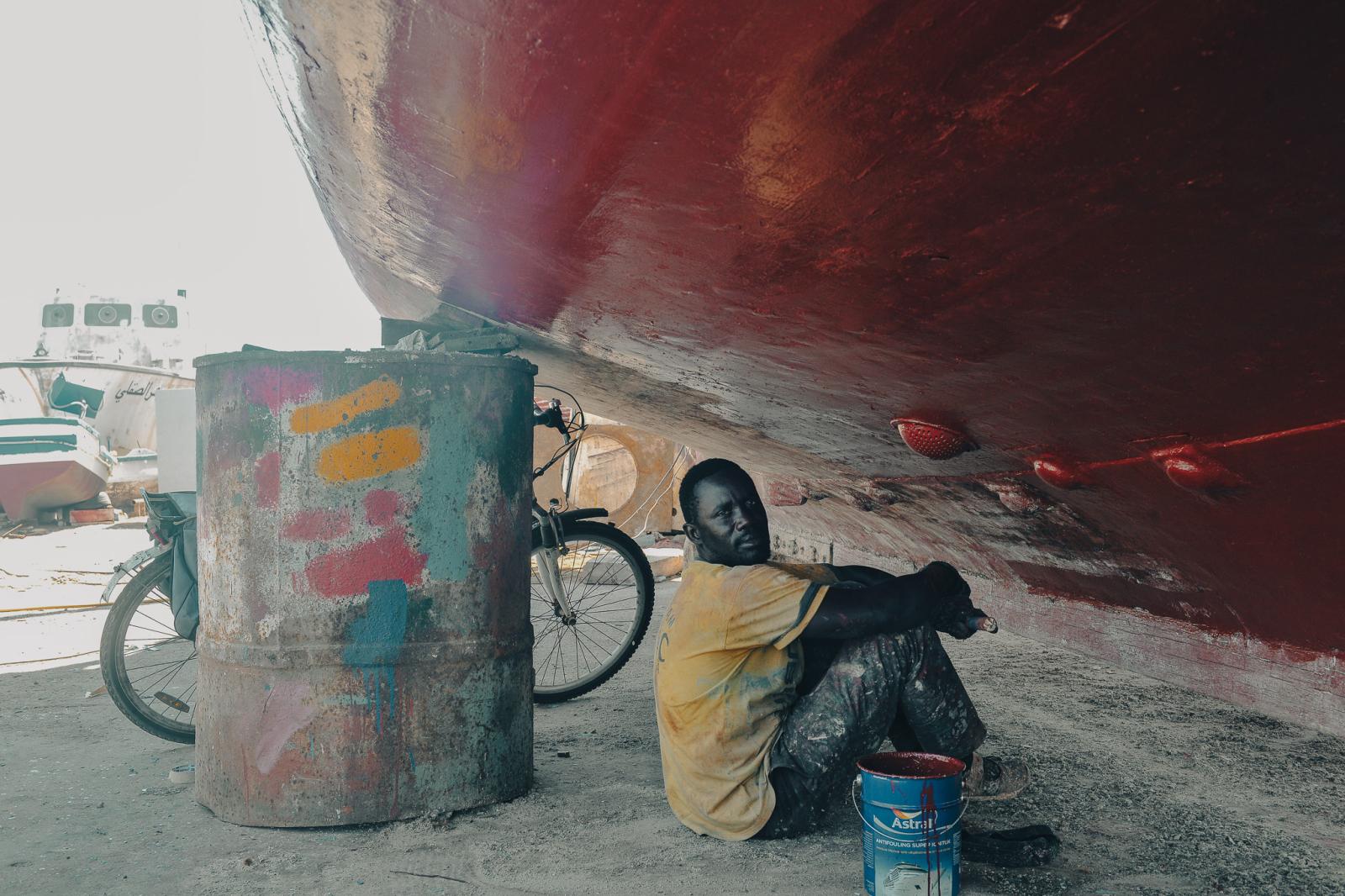Public Project
Zarzis, ceux qui partent et ceux qui restent
Zarzis, Juillet 2023
Ce portfolio est dédié à Adama, Ahmed, Musa et les autres. Toutes celles et ceux croisés sur la route de l’exil à Zarzis. Depuis le 21 février et le discours anti-migrants du Président Kais Saied, les violences et les harcèlements envers les populations de migrants subsahariens ont drastiquement augmentés. Dernier exemple en date, les violentes manifestations contre les migrants qui ont éclaté dans la nuit du 4 juillet à Sfax suite à la mort d’un Tunisien. A Zarzis, cette réalité semble bien loin. Dans cette petite ville côtière du sud-est de la Tunisie, de nombreux exilés ont élu domicile le temps de se reposer avant de retenter la traversée. Nombreux sont ceux qui vivent sur place, se rendant tous les matins au rond-point près du souk à la recherche d’un travail pour la journée. Ici “la vie est plus calme pour l’instant” comme me le dit Musa, guinéen, lorsque nous discutons de la situation en Tunisie. Il partage une maison avec 6 autres compatriotes dont Adama, sa femme Awa et leur fille. Adama a connu l’enfer en Lybie durant 4 ans avec sa femme et à Zarzis, ils retrouvent l’espoir grâce notamment à la naissance de la petite Mariame 4 mois plus tôt. La “petite tunisienne” comme aime l’appeler sa mère ramène de la lumière au sein du groupe, ses moments de jeux sont comme des respirations. Tous attendent le jour où ils auront suffisamment d’argent pour pouvoir reprendre la route de Sfax pour tenter de nouveau la traversée. Comme Mohammed et Soro, “frères d’exil” qui son revenus à Zarzis après leur dernier échec en janvier dernier. Soro est venu en Tunisie il y a plus de quatre ans avec la promesse de signer un contrat en tant que footballeur. Lorsqu’il a compris la supercherie, il était trop tard pour rentrer. Rien ne l’attend aujourd’hui au pays et avec Mohammed, il rêve toujours d’Europe.
Those who leave and those who stay
Zarzis, July 2023
This portfolio is dedicated to Adama, Ahmed, Musa, and the others—everyone encountered on the road of exile in Zarzis. Since February 21st, with President Kais Saied's anti-migrant speech, violence and harassment towards sub-Saharan migrant populations have drastically increased. A recent example was the violent protests against migrants that erupted on the night of July 4th in Sfax following the death of a Tunisian. In Zarzis, this reality seems far removed. In this small coastal town in southeastern Tunisia, many exiles have settled temporarily to rest before attempting the crossing again. Many of them live here, going every morning to the roundabout near the souk in search of work for the day. Here, "life is calmer for now," as Musa, a Guinean, tells me when we discuss the situation in Tunisia. He shares a house with six other compatriots, including Adama, his wife Awa, and their daughter. Adama endured hell in Libya for four years with his wife, and in Zarzis, they are finding hope, particularly with the birth of little Mariame four months ago. "The little Tunisian," as her mother lovingly calls her, brings light to the group, her moments of play feel like breaths of fresh air. They all wait for the day when they will have enough money to head back to Sfax to attempt the crossing once again, just like Mohammed and Soro, “brothers in exile,” who returned to Zarzis after their last failure in January. Soro came to Tunisia more than four years ago with the promise of signing a contract as a footballer. When he realized it had been a scam, it was too late to go back. Nothing awaits him today in his home country, and along with Mohammed, he still dreams of Europe.
Zarzis, July 2023
This portfolio is dedicated to Adama, Ahmed, Musa, and the others—everyone encountered on the road of exile in Zarzis. Since February 21st, with President Kais Saied's anti-migrant speech, violence and harassment towards sub-Saharan migrant populations have drastically increased. A recent example was the violent protests against migrants that erupted on the night of July 4th in Sfax following the death of a Tunisian. In Zarzis, this reality seems far removed. In this small coastal town in southeastern Tunisia, many exiles have settled temporarily to rest before attempting the crossing again. Many of them live here, going every morning to the roundabout near the souk in search of work for the day. Here, "life is calmer for now," as Musa, a Guinean, tells me when we discuss the situation in Tunisia. He shares a house with six other compatriots, including Adama, his wife Awa, and their daughter. Adama endured hell in Libya for four years with his wife, and in Zarzis, they are finding hope, particularly with the birth of little Mariame four months ago. "The little Tunisian," as her mother lovingly calls her, brings light to the group, her moments of play feel like breaths of fresh air. They all wait for the day when they will have enough money to head back to Sfax to attempt the crossing once again, just like Mohammed and Soro, “brothers in exile,” who returned to Zarzis after their last failure in January. Soro came to Tunisia more than four years ago with the promise of signing a contract as a footballer. When he realized it had been a scam, it was too late to go back. Nothing awaits him today in his home country, and along with Mohammed, he still dreams of Europe.
612
































